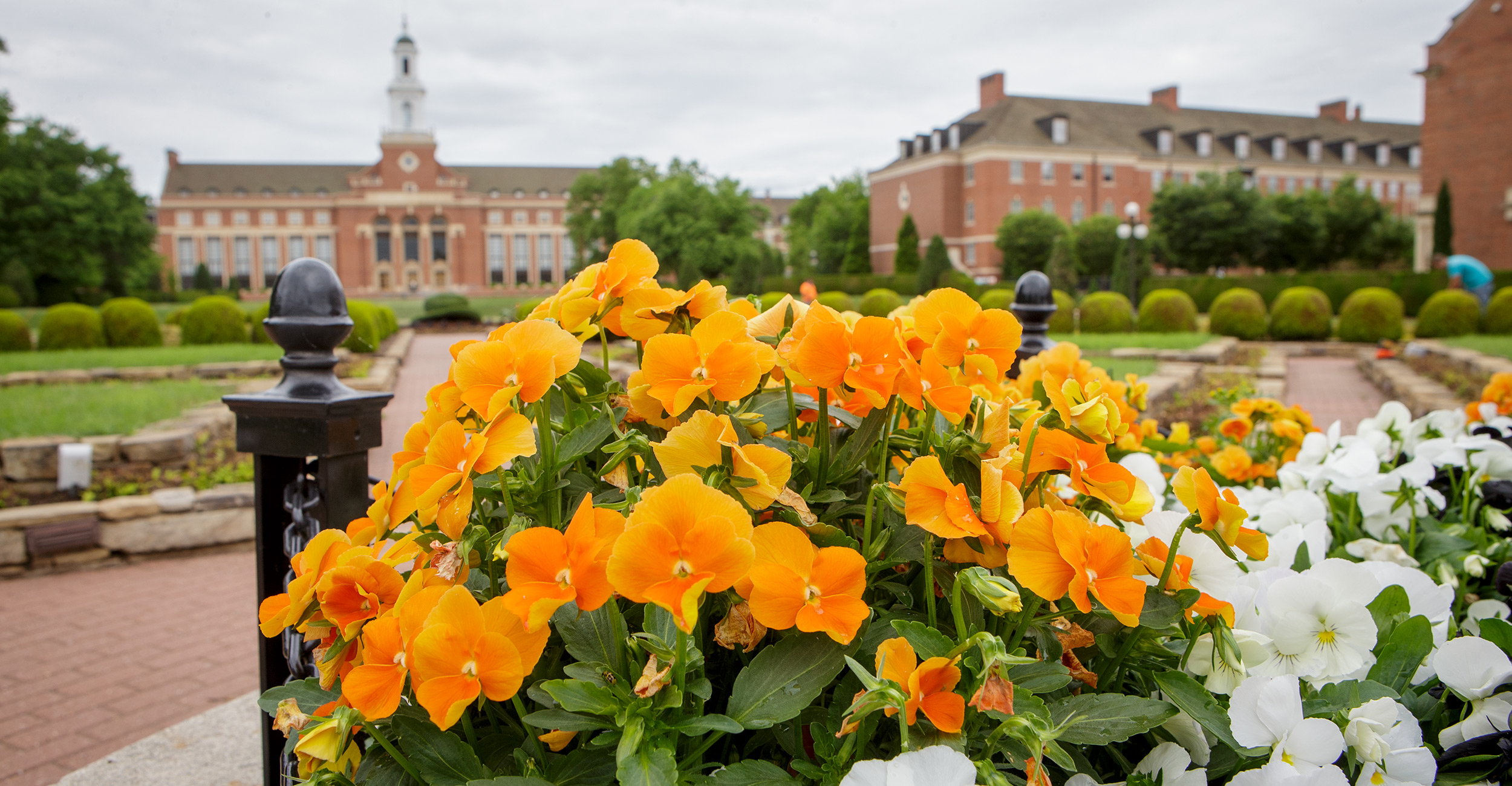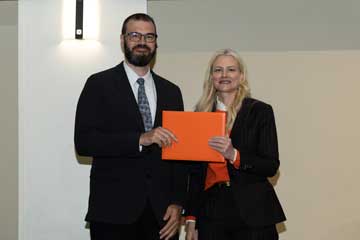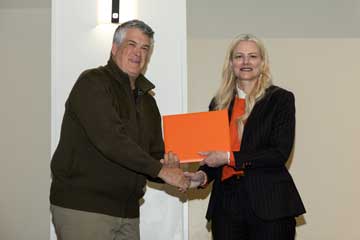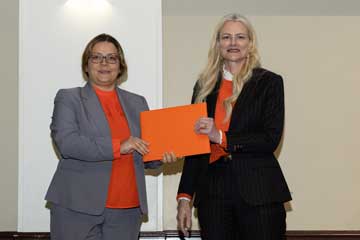
OSU names 3 professors President’s Fellows Faculty Research Award recipients
Tuesday, March 26, 2024
Media Contact: Sydney Trainor | Communications and Media Relations Specialist | 405-744-9782 | sydney.trainor@okstate.edu
Drs. John O’Hara, Bruce Noden and Laleh Tahsini were named recipients of Oklahoma State University’s 2024 President’s Fellows Faculty Research Award during the Annual Researchers Reception on Tuesday in the Student Union Ballroom.
Facilitated by OSU President Kayse Shrum and the President’s Fellows Organization, this local grant program supports important and impactful faculty research. It’s a one-time $20,000 award to be expended on the project proposed by faculty with updates given to the President’s Fellows Organization through 2025.
“These grants are funded by donors to the university who then decide to give the president funds that can be used for whatever the president believes is of the highest importance and greatest need,” said Dr. Kenneth Sewell, OSU vice president for research.
At the reception, Dr. Shrum congratulated and thanked the fellows as well as other researchers for all their work with the university over the past year.
“We are obtaining grants to help us achieve the vision to be a preeminent land-grant university,” Shrum said. “And we spend a lot of time determining the key areas that OSU has strength that intersect with some of society's greatest challenges. We are not only impacting classrooms or labs but also the well-being of society, extending through our state and our world.”
Award Recipients

O’Hara — associate professor and PSO/Albrecht Naeter Professor in Electrical Engineering — researches the use of novel terahertz and optical systems for the realization of 6G communications; optical and RF/optical hybrid sensing and communication; IoT (internet of things); artificial electromagnetic materials; and STEM outreach to rural communities.
O’Hara’s proposal is to create the first 6G channel emulator that will be used by future engineers to design real world networks.
“I am very excited and pleased to be selected for the President’s Fellows Faculty Research Award,” O’Hara said in a release. “It is a great honor, personally, of course. But it also represents the fruit of the strong investments our department and college have made to enable impactful research. My students and I are very excited to use this opportunity to push forward the wireless communication technologies that the whole world may adopt in the next 5-10 years."

Noden — associate professor in the Department of Entomology and Plant Pathology — researches woody plant encroachment (WPE), which is a pervasive form of human-caused land cover change ongoing globally, notability in the south-central U.S.
The long-term goal is to clarify how WPE affects tick-borne diseases in the south-central U.S., and to apply this knowledge to better predict human disease risk and target public health resources and WPE management that benefit human health.
“This award has been very encouraging as it comes at a critical time for my research program,” Noden said. “I am thankful for all involved as it really has allowed me to keep pursuing an important question in regards to One Health in the Southern Great Plains.”

Tahsini — associate professor of chemistry — researches the growing multidrug-resistant bacterial infections impacting the globe. She plans to develop efficient metallodrugs with minimum or no toxicity using copper-NHC complexes. NHC stands for N-Heterocyclic Carbene, and copper is a promising candidate due to its behavior offering chemical reactivity and new mechanisms of drug actions.
Tahsini’s research team has partnered with a team at the University of Arkansas-Little Rock to help in testing the antimicrobial activity of these complexes against clinically relevant bacterial strands.
Within a year, Tahsini hopes to provide a case to the NIH for further funding, which would make these antibiotics accessible to those in need.
“It is encouraging to be selected for the President’s Fellows Faculty Research Award,” Tahsini said in a release. “The community gets to know the great research being done by OSU faculty and students. It highlights the importance of what we are doing in chemistry and helps us as a group gain visibility in the scientific community working on health-related issues.”
Story By: Abigail Cage | abcage@okstate.edu
